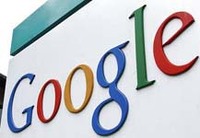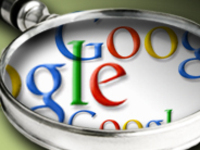Following is the essay you can designate as Volume 10, Number 44 of
This Week’s Clue, based on the e-mail newsletter I have produced since
March, 1997. It would be the issue of November 5.
Enjoy.
The next sound you hear will be that of the Second Internet Bubble popping.
Bubbles are a natural fact of the business landscape. They occur when expectations get seriously ahead of values, when everyone goes "all in" on a proposition and there are no new suckers to keep the prices up.
I have seen many bubbles in my time. The oil bubble of the late 1970s. The PC bubble of the early 1980s. The S&L and merger bubbles and the Japan bubble of the late 1980s. The biotech bubble of the even-later 1980s. The multimedia bubble of the early 1990s. The dot-com bubble of the late 1990s. And, of course, the housing bubble which popped earlier this year.
Notice that in most of these bubbles there was something real, something that earned serious profits, and something that survived. There were also "bell cows" in all these bubbles, companies whose rises were emblematic of their time and which (if they were lucky) became solid, old-line companies.
Microsoft, whose bubble period was in the early 1990s, springs to mind in this regard. Back then I went to several Comdex shows in Las Vegas where waiters and cab drivers told Bill Gates stories, which were in fact recycled Sam Walton stories. About what a regular fellow he was. About how cheap he was. Like the one of him stuffing an over-filled suitcase into the overhead bin of a coach cabin, because he just wasn’t willing to fly first class.
The point is there was a "there, there" at Microsoft. The bubble times could not last — they never can — but they carry much along with them, and they can leave a lasting legacy, if the company involved uses its "bubble time" wisely. Microsoft used its bubble time to cement its dominance in the PC space, building its Office monopoly to sit alongside its Windows monopoly, and looking to "embrace and extend" that monopoly into other areas.
The most notorious of all bubbles, of course, was the dot-com
bubble, which we covered in depth here while it was happening in the
late 1990s. At one point I lamented, "the point of this is not to get
Dana drunk," but for many firms this was precisely the point. Never was
so much capital wasted on so many businesses which had no clue how to
turn a profit.
One of my best memories of that time was just after the end, in May
of 2000. I was attending the ad:Tech show in San Francisco, and was on
a bus, returning to our hotel after a glorious lunch on a giant yacht,
called by a high-flying PR firm which had just sold out to another
firm, which had, in fact, just found a sucker.
So I’m sitting in the bus, feeling very mellow, and this
20-something "entrepreneur" starts complaining. Seems the venture
capitalists were being mean to him. Seems they were demanding
ever-larger pieces of his deal for ever-smaller hunks of cash. I
couldn’t help myself. I began laughing, quite uproariously, quite
impolitely, so much so that tears were running down my cheeks and I
became quite winded. The idea that nonsense should feel offended when
someone comes back at them with sense, I thought. Such a child. Such a
silly, silly child.
What set me off was the bubble’s popping, which occurred almost
precisely on my 45th birthday, which was January 12, 2000. This was
when Time Warner bought AOL, which was advertised at the time as being
the other way-around. What made this pop the bubble was that, for the
first time, an Internet powerhouse was being fully-valued, and the fact
that it had sold itself out for less than the market was then willing
to pay for it.
Full value pops all bubbles. So long as there is hope, or rather
greed, for further profit in an investment, especially one which is
already making money, then people will continue flocking to it. Once
the hope is extinguished, the fall is excruciating.
For any bubble based on stocks, the fall happens quickly. Stocks are
very liquid. You can sell stocks online, just get rid of them. Or so
you may think, until everyone heads for the doors at once. Then there
are those sickening moments, or minutes, or hours, or days, when there
are no buyers about, at which point someone will take whatever is
offered, a bottom is found, and the game is over.
Real estate bubbles are different, because real estate is not
liquid. It can take months to sell a house in the best of times, as
anyone who has tried to sell one (or buy one) will attest. The dealer’s
commission can be absolutely enormous — 7% (plus legal fees) on each
transaction. This means you lose about 15% of your equity every time
you move. I haven’t moved since 1983. It’s a dumb thing to do,
financially, and only makes sense if your life changes and you just
have to do it.
That’s not the way people treat real estate during a bubble, of
course. They’ll sell at the drop of a hat, get into something bigger,
leverage like mad, dump it for a quick profit and do it again. And
again. And again. This latest bubble was made possible by
government-subsidized financing, aimed at making housing "affordable,"
and the creation of new jumbo securities, which made it
"collateralized." In the rush to create new securities people wrote bad
loans, with foolish terms, and bundled them into instruments alongside
good loans, so when the bubble popped no one knew what they had, or
what it was worth.
We’ll find out, but it will take time. Real estate bubbles pop in
slow motion, over many months. All the cycles of grief — denial,
bargaining, anger, depression and acceptance — must pass through the market
before you reach submission and a true market bottom. Then everything
— all those securities — have to be revalued, and the losses totaled,
written off. In the last such cycle, in the 1970s, homes wound up
losing about half their value, and didn’t regain even a portion of that
value for many years, so that when I moved to my present home, in 1983,
it was still considered bad business to build a new house intown, since
existing homes cost so much less than the cost of constructing one.
And so we end our history lesson and reach the current bubble, the
one I called you here to talk to you about. The Google Bubble.
The Google Bubble, sometimes called the Web 2.0 bubble, is (unlike
the dot-com bubble) based on real earnings, but also unrealistic
expectations for those earnings. Google can only continue to grow
earnings at their present rate if they actually do something new — the
value of Web advertising is fully-priced in the market.
This was also true in the dot-com era, which is why Yahoo bought so
many phony companies with the phony currency of its stock. Mark Cuban’s
Broadcast.com was just the most notorious of these. Cuban had no Web
broadcast rights as such, he just ran existing broadcasts through a Web
site and brought in $5 billion for it. He then sold his Yahoo stock
near the top.
Google has done much the same thing, buying all sorts of garbage, in
financial terms. It bought Blogger. It bought YouTube. It bought Orkut.
Then it placed a fancy Google wrapper around these companies and the
market went aaah — without ever asking how the money would come back.
Its AOL moment came this last week, following literally months of
speculation concerning a "Google PC" and a "Google Phone." In fact, the
former turned out to be an Everex PC
with a no-name Linux distribution called GOS, from a company
technically unaffiliated with Google. All Google was offering was a
toolbar, the same toolbar Everex used in a Windows Vista box it offered
a few months earlier. The latter scam was even worse — all Google
finally delivered was a specification for a Linux phone and an "alliance" which, it said, would bring it to market. With their own money, not Google’s.
You run this scam often enough and people are going to figure it out. TV analysts like Jim Cramer have continued to hype Google stock, they say, in spite of these scams, based only on its continuing to deliver results. But a P/E of 56 is still more of a prayer than an expectation. This is more than double the P/E of Microsoft and almost three times more than that of AT&T — and in the present environment I don’t think those look too good, either.
Money continues to pile into the U.S. stock market because so many
other things aren’t working. But any foreigner who’s now buying U.S.
stocks is getting hosed
— our currency keeps depreciating against theirs, which means their
asset values are declining. The same is true for any U.S. investor who
isn’t heavily invested overseas — even bad European investments become
tasty when the Euro is rising and the dollar, falling.
What will cause the light switch to turn on? What will precipitate the popping of the Google bubble?
I think we’ve just found out. And there’s no new bubble to replace
it. Not in the U.S. anyway. Gold looks good, oil looks good, but these
are not companies, they don’t create anything new. They’re just a safe
haven, a way to hoard.
Which means the action is going overseas. And it won’t come back here for a good long time.


















you need to get your facts right. Broadcast.com had rights to EVERYTHING we broadcast. No exceptions
unlike Google, we respected copyright enough to get permission
m
you need to get your facts right. Broadcast.com had rights to EVERYTHING we broadcast. No exceptions
unlike Google, we respected copyright enough to get permission
m
“So I’m sitting in the bus, feeling very mellow, and this 20-something “entrepreneur” starts complaining. Seems the venture capitalists were being mean to him. Seems they were demanding ever-larger pieces of his deal for ever-smaller hunks of cash. I couldn’t help myself. I began laughing, quite uproariously, quite impolitely, so much so that tears were running down my cheeks and I became quite winded. The idea that nonsense should feel offended when someone comes back at them with sense, I thought. Such a child. Such a silly, silly child.”
What’s so funny about that?
That one rant ruined an otherwise obvious set of observations. Bravo.
“So I’m sitting in the bus, feeling very mellow, and this 20-something “entrepreneur” starts complaining. Seems the venture capitalists were being mean to him. Seems they were demanding ever-larger pieces of his deal for ever-smaller hunks of cash. I couldn’t help myself. I began laughing, quite uproariously, quite impolitely, so much so that tears were running down my cheeks and I became quite winded. The idea that nonsense should feel offended when someone comes back at them with sense, I thought. Such a child. Such a silly, silly child.”
What’s so funny about that?
That one rant ruined an otherwise obvious set of observations. Bravo.
A P/E ratio of 56 is a sure sign to dump the thing and head for the hills. That stock is seriously overvalued, overvalued far beyond all reason, and you r best hope is a bigger sucker.
If you look at the P/E ratios of your favorites and they are up past, say, 30, that stock is full of helium. Sell out now, at the top, before the actual – physical – market – for – value sticks a pin in it.
A P/E ratio of 56 is a sure sign to dump the thing and head for the hills. That stock is seriously overvalued, overvalued far beyond all reason, and you r best hope is a bigger sucker.
If you look at the P/E ratios of your favorites and they are up past, say, 30, that stock is full of helium. Sell out now, at the top, before the actual – physical – market – for – value sticks a pin in it.
Google dominates online advertising and is leveraging that position to gain market share in online payments. While Google has a potential huge liability with the Viacom lawsuit, Google’s underlying ability to offer the storage and bandwidth to support YouTube and continue to operate quite profitably is unique. They hire smart people, experiment publicly, and have a stable of applications that most of us use on a daily basis — maps, language tools, search, mail, Google Products (nee Froogle), etc. With most of the world still not online, they have tremendous room for growth as the Internet grows over the next decade. Their forward P/E is just 32, suggesting earning growth of about 50%. You’re not just alleging a bubble, you’re alleging criminal conspiracy on guidance the company is giving.
Google dominates online advertising and is leveraging that position to gain market share in online payments. While Google has a potential huge liability with the Viacom lawsuit, Google’s underlying ability to offer the storage and bandwidth to support YouTube and continue to operate quite profitably is unique. They hire smart people, experiment publicly, and have a stable of applications that most of us use on a daily basis — maps, language tools, search, mail, Google Products (nee Froogle), etc. With most of the world still not online, they have tremendous room for growth as the Internet grows over the next decade. Their forward P/E is just 32, suggesting earning growth of about 50%. You’re not just alleging a bubble, you’re alleging criminal conspiracy on guidance the company is giving.
I would not have any problem if someone could guarantee that Google is going to continue to increase Adwords+Adsense revenues. The only way they can increase those revenues is by charging more money for the keywords in Adwords which will reduce advertisers and by squeezing website owners in Adsense which will reduce interest from the website owners to carry those ugly “Ads by Google”.
This is why Google wants to purchase DoubleClick because DoubleClick’s corporate clientale is not as budget sensitive as Adwords clients are. Therefore, the rejection of DoubleClick’s purchase by Google by the European Union will show that Emporer Goo has no clothes left. 🙂
Microsoft will come up with competition for Adwords and Adsense. Yahoo is a wild card.
Goo, Goo GoogleBubble.com 🙂
I would not have any problem if someone could guarantee that Google is going to continue to increase Adwords+Adsense revenues. The only way they can increase those revenues is by charging more money for the keywords in Adwords which will reduce advertisers and by squeezing website owners in Adsense which will reduce interest from the website owners to carry those ugly “Ads by Google”.
This is why Google wants to purchase DoubleClick because DoubleClick’s corporate clientale is not as budget sensitive as Adwords clients are. Therefore, the rejection of DoubleClick’s purchase by Google by the European Union will show that Emporer Goo has no clothes left. 🙂
Microsoft will come up with competition for Adwords and Adsense. Yahoo is a wild card.
Goo, Goo GoogleBubble.com 🙂
Expectations with google have increased and this has been the source for Google Bubble and it’s burst.GOOG
Expectations with google have increased and this has been the source for Google Bubble and it’s burst.GOOG